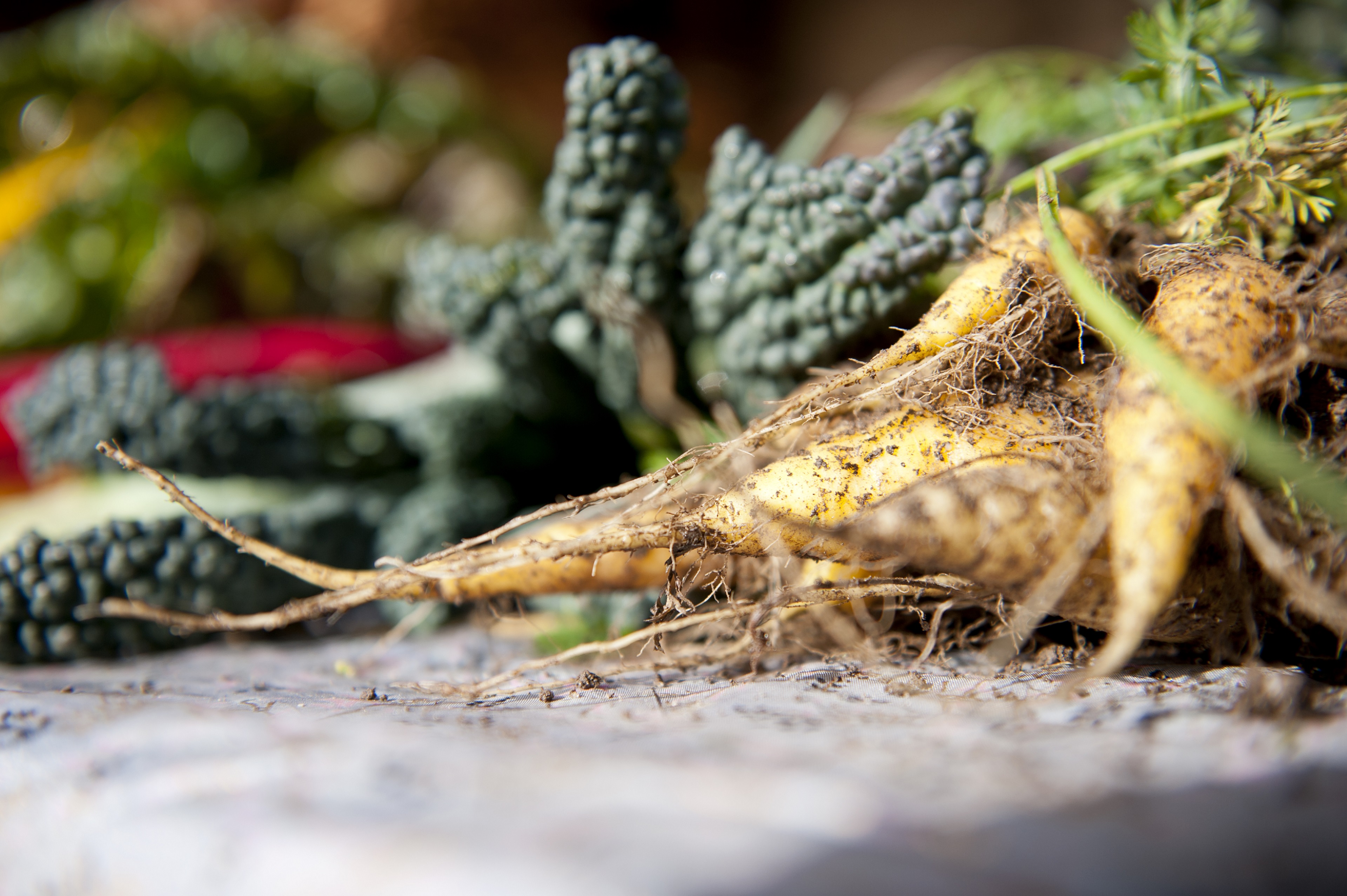Fresh vegetables
South Tyrol's farmers are exploring new approaches to farming. Harald Gasser grows old vegetable varieties. Ever heard of purple carrots?
You wouldn't know it by looking at him, but Harald Gasser enjoys going the extra mile for his passion. Formerly a social worker, he now experiments with old and rare varieties of vegetables that hardly anyone is familiar with. Not even by name. Perhaps you have heard of them?
There was a time when Harald Gasser used to get sad, or even cry when working in his fields. For some reason, no one wanted his carrots. "I transported them by tractor in bulk to the compost heap," says Gasser. In the village, people made up strange nicknames for him.
Oh how things have changed. Today, he has to produce more than even he would like. Harald Gasser is a vegetable farmer who specialises in growing old varieties. To reach the Aspingerhof in Barbian/Barbiano above Klausen/Chiusa, you first drive steeply uphill, then downhill. The entire way up, you’re forced to wonder if this is really the right road? When Harald Gasser is working in the field, he has a view of the magnificent Trostburg castle on the other side of the valley. Far below him, the motorway through the Eisacktal valley twinkles colourfully.


